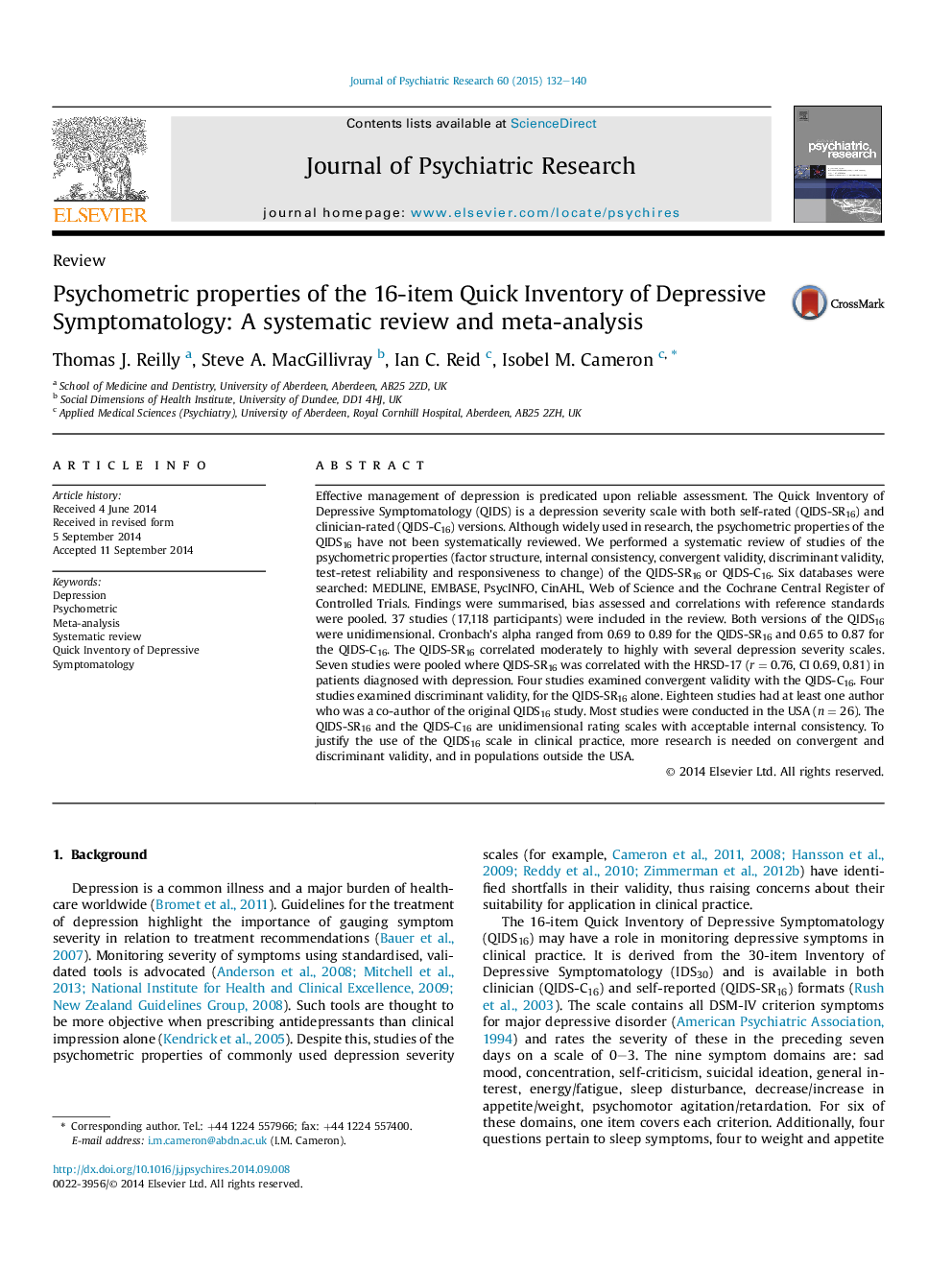| کد مقاله | کد نشریه | سال انتشار | مقاله انگلیسی | نسخه تمام متن |
|---|---|---|---|---|
| 327314 | 542838 | 2015 | 9 صفحه PDF | دانلود رایگان |
• We systematically reviewed the psychometric properties of the QIDS-SR16 and QIDS-C16.
• We included 37 suitable studies with 17,118 participants in total.
• Both the QIDS-SR16 and the QIDS-C16 were shown to be unidimensional.
• Both versions had acceptable internal consistency.
• More psychometric research is needed, in populations outwith the USA.
Effective management of depression is predicated upon reliable assessment. The Quick Inventory of Depressive Symptomatology (QIDS) is a depression severity scale with both self-rated (QIDS-SR16) and clinician-rated (QIDS-C16) versions. Although widely used in research, the psychometric properties of the QIDS16 have not been systematically reviewed. We performed a systematic review of studies of the psychometric properties (factor structure, internal consistency, convergent validity, discriminant validity, test-retest reliability and responsiveness to change) of the QIDS-SR16 or QIDS-C16. Six databases were searched: MEDLINE, EMBASE, PsycINFO, CinAHL, Web of Science and the Cochrane Central Register of Controlled Trials. Findings were summarised, bias assessed and correlations with reference standards were pooled. 37 studies (17,118 participants) were included in the review. Both versions of the QIDS16 were unidimensional. Cronbach's alpha ranged from 0.69 to 0.89 for the QIDS-SR16 and 0.65 to 0.87 for the QIDS-C16. The QIDS-SR16 correlated moderately to highly with several depression severity scales. Seven studies were pooled where QIDS-SR16 was correlated with the HRSD-17 (r = 0.76, CI 0.69, 0.81) in patients diagnosed with depression. Four studies examined convergent validity with the QIDS-C16. Four studies examined discriminant validity, for the QIDS-SR16 alone. Eighteen studies had at least one author who was a co-author of the original QIDS16 study. Most studies were conducted in the USA (n = 26). The QIDS-SR16 and the QIDS-C16 are unidimensional rating scales with acceptable internal consistency. To justify the use of the QIDS16 scale in clinical practice, more research is needed on convergent and discriminant validity, and in populations outside the USA.
Journal: Journal of Psychiatric Research - Volume 60, January 2015, Pages 132–140
